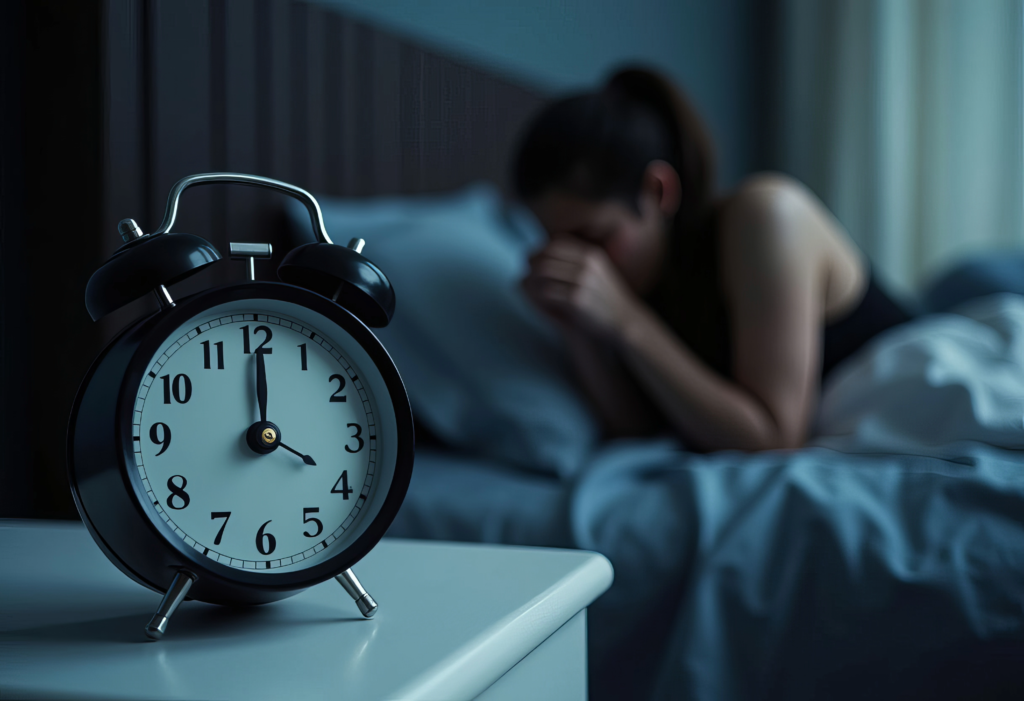The Modern Struggle with Sleep

Sleep is essential to well-being, yet many people find a good night’s rest hard to achieve. Insomnia and sleep disturbances have become increasingly common in today’s fast-paced world, affecting both mental and physical health. Fortunately, a range of holistic approaches and lifestyle changes can help improve sleep quality and encourage more restful nights.
Understanding Insomnia and Its Impact
Insomnia, defined as the inability to fall asleep, stay asleep, or achieve restorative sleep, can be acute or chronic. For some, it lasts a few days, while for others, it persists for months or even years. Poor sleep affects concentration, memory, mood, and physical health, leading to chronic stress and conditions like high blood pressure, weakened immunity, and even heart disease.
Lifestyle Adjustments for Improved Sleep Patterns
- Establish a Consistent Routine: Going to bed and waking up at the same time daily, even on weekends, helps regulate the body’s internal clock, known as the circadian rhythm. This natural cycle controls feelings of sleepiness and wakefulness, so a consistent schedule can make falling asleep easier.
- Create a Restful Environment: Your bedroom should be a sanctuary of peace and relaxation. A dark, cool room free of noise and electronic distractions promotes deep sleep. Invest in blackout curtains, a white noise machine, or an air purifier for added comfort. Even the right pillow and mattress can make a difference.
- Limit Stimulants and Adjust Evening Eating Habits: Caffeine, alcohol, and nicotine can all disrupt sleep quality if consumed too close to bedtime. Caffeine’s stimulating effects can last up to six hours, while alcohol might initially make you sleepy but can interfere with deeper stages of sleep later in the night.
Holistic Therapies to Improve Sleep
Several holistic approaches can ease insomnia and improve sleep patterns. These therapies focus on calming the mind, soothing the nervous system, and preparing the body for rest.
- Meditation and Mindfulness Practices: Meditative practices, especially mindfulness meditation, encourage mental relaxation, reducing stress and anxiety that can disrupt sleep. Try meditating for just 10–15 minutes before bed or practice deep-breathing techniques to help the mind and body transition to sleep mode.
- Aromatherapy: Certain essential oils, like lavender, chamomile, and valerian root, have natural sedative properties. Aromatherapy can create a calm environment by engaging the senses. Essential oils can be diffused in the bedroom or applied to pillows and bed linens, subtly signalling to the body that it’s time to wind down.
- Acupressure and Reflexology: Acupressure is an ancient technique that applies gentle pressure to specific body points, promoting relaxation. Reflexology treatments target these points in the feet, which can positively affect the nervous system, reduce tension, and encourage restful sleep.
- Hot Stone Therapy: This therapy provides a soothing sensation of warmth that helps release muscle tension and enhances relaxation. The heat from the stones penetrates deep into the muscles, promoting circulation and calming the body, making it easier to slip into a restful sleep after treatment.
- Reiki: As an energy-based therapy, Reiki is another holistic approach that targets energy imbalances, stress, and tension, all of which can disrupt sleep. During a Reiki session, practitioners channel energy to areas of the body that may be holding stress, helping to restore balance and calm.
Practical Tips for Preparing for Better Sleep
- Practice a Nightly Wind-Down Routine: Aim to set aside at least an hour before bed to engage in relaxing activities. Reading, listening to calming music, or practicing gentle yoga can signal to the body that it’s time to slow down.
- Limit Screen Time: The blue light emitted from phones, computers, and televisions can interfere with melatonin production, a hormone essential for sleep. Try to avoid screens at least 30 minutes before bed.
- Exercise During the Day: Physical activity helps regulate sleep patterns and reduce stress, both of which improve sleep. Aim for at least 20–30 minutes of exercise daily, but avoid high-intensity workouts close to bedtime, as these may be stimulating.
- Keep a Sleep Journal: Writing down thoughts and feelings before bed can be a powerful way to manage stress and prevent nighttime rumination. A sleep journal can help identify patterns that may be affecting your sleep, allowing you to make adjustments accordingly.
When to Seek Help
If you’ve tried various approaches and still find sleep elusive, it may be time to consult a professional. Holistic therapies, such as those offered at Touchstone, can supplement medical advice by addressing physical, mental, and emotional factors impacting sleep.







